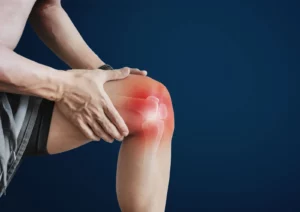On February 14th, red and pink hearts—including heart-shaped candies, greeting cards, and more—are everywhere as the world celebrates love. Yet, despite this, we focus on romantic, high-calorie dinners, celebratory champagne, and boxes of indulgent chocolate delight to celebrate this day.
One unique yet great way to celebrate would be checking on the state of your actual heart and taking specific measures to give it more love.
Whatever your motivation, remember that maintaining a healthy heart is worthwhile. Your entire body will benefit from it. Good heart health can also shield you from type 2 diabetes, asthma, joint discomfort, and other chronic diseases. It may even lower your risk of developing cancer.
This article will aim to help you give the best Valentine’s gift for yourself this year by taking care of your heart health.
11 heart-healthy tips for Valentine’s Day
The key to overall good health is having a healthy heart. It circulates nutrient-rich blood throughout your body, provides oxygen, and removes waste and pollutants.
It is crucially responsible for almost everything that keeps your body alive, from the successful operation of your immune system to the transfer of oxygen throughout your body as the center of your cardiovascular system.
Here are healthy lifestyle tips you can practice daily to keep your heart healthy:
Stay active
Exercise and physical activity can lower your risk of cardiovascular disease and even help to reverse some risk factors, such as being overweight or having high blood pressure.
Aim for at least 30 minutes of aerobic exercise five days a week to raise your heart rate. However, any activity will benefit your heart, so remain active and move around.
Reduce your salt intake
All humans require the mineral sodium. It aids in maintaining the right balance of fluid levels in your body and contributes to the healthy operation of your muscles and nerves. However, that fluid balance is delicate because fluid retention brought on by too much sodium might raise blood pressure.
Limit your consumption of red meat, sugar and unhealthy fats
A significant risk factor for coronary heart disease is diet. Obesity, high blood pressure, uncontrolled diabetes, and a diet rich in saturated fats are examples of risk factors associated with food.
Diets high in fiber, plant-based foods, and low in saturated fat can significantly lower the risk of developing heart disease. To boost the amount of fiber in your diet, including fruits and vegetables.
Stop smoking
Cardiovascular disease (CVD) is largely brought on by smoking, which also causes about one of every four fatalities from CVD, according to the 2014 Report of the Surgeon General on smoking and health.
Smoking makes blood vessels more likely to develop plaque. Coronary heart disease occurs when arteries that provide blood to the heart muscle are clogged with clots or constricted by plaque. Smoke from cigarettes contains chemicals that make blood thicken and clot in veins and arteries.
Keep your weight under control
The likelihood of developing heart disease, high blood pressure, type 2 diabetes, breathing difficulties, and several malignancies increase with body fat and weight. The best method to keep a healthy weight is to eat a balanced diet, practice portion management, and exercise regularly.
Know your cholesterol levels
Although your body needs cholesterol to create healthy cells, having too much of it can increase your chance of developing heart disease. This is because you can form fatty deposits in your blood vessels if you have high cholesterol.
Over time, these deposits thicken and restrict the blood that can pass through your arteries. If you have not had your cholesterol levels checked in the past year or two, get them examined immediately to determine if you’re at risk for heart disease.
Know your blood pressure
Heart attacks, strokes, and heart failure are all significantly increased by high blood pressure, often known as hypertension. High blood pressure is a problem that many people don’t even know they have. In addition to making changes to one’s lifestyle, like exercising more and eating less salt, there are effective therapies for hypertension.
Know your blood sugar levels
Over time, excessive blood sugar might harm your heart’s nerves and blood vessels. Another issue that increases the risk of heart disease in people with diabetes is high blood pressure, which increases the force of blood through your arteries and can harm the arterial walls.
Reduce stress
High blood pressure brought on by stress can increase the risk of stroke and heart attack. Stress may also contribute to such cardiovascular disease risks the same way as smoking, overeating and lack of physical activity.
Try yoga, meditation, or just 10 minutes of silence and stillness daily. Take particular care of your heart and be cautious of the stress in your life.
See your doctor regularly
One of the best methods to prevent cardiovascular disease is through routine medical checkups. According to studies, those who stop taking their cardiovascular prescriptions run a higher risk of having a heart attack, a stroke, developing heart failure, and dying sooner.
A time for extra care
Slow down and take care of yourself by improving your lifestyle and visiting One Step Diagnostic for a health check. Also, make sure to get enough sleep.
Regardless of age, weight, smoking, or exercise habits, insufficient sleep increases your risk for cardiovascular illness and coronary heart disease. In addition, lack of sleep alters how our bodies work and may raise blood pressure.
Give your Heart Some Love
At any age, adopting a healthy lifestyle can help prevent heart disease and reduce your chance of having a heart attack or stroke. You can start caring for your heart at any age—you are never too young or too old.
Numerous factors that may affect your heart health are directly under your control. You get to decide how seriously you take this commitment.
One Step Diagnostic in Houston, Texas, will help you diagnose health problems as accurately as possible. Our doctor may also prescribe blood tests, urine tests, and physical exams in addition to the imaging scans we offer.




